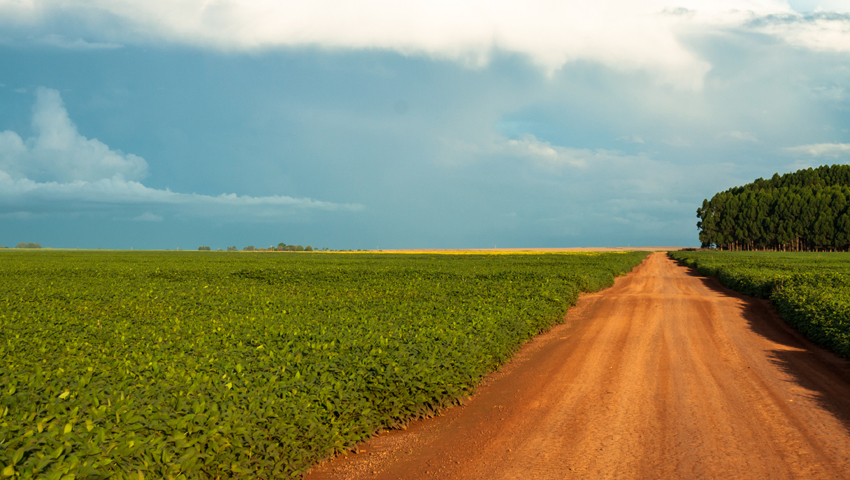CARGILL has announced an accelerated commitment to eliminate deforestation and land conversion from its direct and indirect supply chain of key row crops in Brazil, Argentina, and Uruguay by 2025. South America is one of the world’s most critical regions for biodiversity, and also, the company says, for food production.
The Cargill commitment spans several important commodities in the global food system, including in-country origination of soy, corn, wheat, and cotton, building on the company’s global commitment to deforestation-free commodities and conversion-free soy across South America by 2030.
Pilar Cruz, Cargill’s Chief Sustainability Officer, said, “At Cargill, we are actively shaping a future where critical ecosystems will be protected for generations to come. Accelerating our commitment is a testament to our resolve to make real, tangible progress against deforestation and land conversion, in line with our climate action plan, while also supporting the livelihoods of farmers and agricultural communities that are vital to feeding the world.”
Combined, Argentina, Brazil and Uruguay provide approximately 30% of the world’s trade flows and 13% of total production of these crops. A Cargill spokesperson said that the company’s commitment would help protect native vegetation and support sustainable agriculture in these countries.
Pilar Cruz added, “As Cargill works to eliminate deforestation in our supply chains around the world, we are prioritising collective action and collaborative partnerships with farmers, governments, non-governmental organisations, and other critical stakeholders to find balanced solutions for economic development and environmental conservation.”
In particular, Cargill will leverage World Resources Institute’s (WRI) geospatial expertise alongside improved traceability to strengthen its monitoring, reporting and verification of natural ecosystems and farm areas.
Craig Hanson, Managing Director of Programs at WRI, said, “Getting deforestation and conversion of natural ecosystems out of soft commodity supply chains is one of the most significant things a business can do for people, nature, and climate. Cargill’s new commitment aligns with a vision that it’s possible to produce food while protecting vital ecosystems. Our monitoring expertise should help Cargill achieve this ambitious commitment in Brazil, Uruguay and Argentina by 2025.”
However, Mighty Earth CEO Glenn Hurowitz takes a more nuanced view. He said, “Cargill’s new commitment to eliminate ecosystem destruction in Brazil, Argentina and Uruguay linked to soy, corn, wheat and cotton by 2025 is an important but incomplete step for nature, climate, and communities.
“As a top driver of ecosystem destruction in Latin America, Cargill’s commitment can make a big difference on the ground if fully implemented. But we have two significant concerns with the company’s announcement.
“First, there’s no reason why nature should get protection in only these three countries – and why it shouldn’t be protected immediately. Cargill is one of the top drivers of nature destruction in Bolivia, Paraguay, and Colombia. Bolivia experienced a 32% increase in primary forest loss between 2021 and 2022 – four times the rate of Brazil. This is, in part, due to Cargill’s continued willingness to buy from suppliers engaged in deforestation.
“Second, Cargill’s commitment effectively gives the green light for deforestation for a further 18 months, because it doesn’t go into effect until 2025 and lacks any mention of a cut-off date – the date non-compliant supply is not permissible. We’re calling on Cargill – along with the signatories of the COP27 Agribusiness Roadmap – to agree to a cut off date of 2020 to ensure this incomplete policy does not spark a ‘race to bulldoze’ in biomes such as the Grand Chaco and the Chiquitano ahead of 2025.
“Cargill’s commitment should spark accelerated action by food and agriculture companies on deforestation in the lead-up to the COP28 climate summit. This news should also be a wake-up call for competitors like ADM, who recently announced an even weaker policy to eliminate deforestation by 2027. Given Cargill’s historic leading role in driving forest destruction, their commitment should be considered an absolute baseline. Today, we have written to Cargill’s competitors to urge acceleration of their commitments.
“Given Cargill’s track record, Mighty Earth will continue to closely monitor cases of deforestation in Cargill’s supply chains.”
